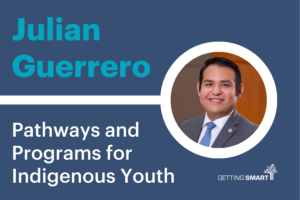iNACOL Releases 5 Policy Reforms for Online Learning

The International Association for K-12 Online Learning’s (iNACOL) Director of Policy, David Teeter, recently published “Online Learning: Top 5 Federal Policy Issues Brief,” which takes a close look at reforms to improve student-centered, competency-based policies for online learning.
The policy brief provides background and recommendations for five key issues, which include the following:
- Individual student growth models to support student-centered, competency-based learning
- Performance-based systems of assessments
- Federal research for High-quality online learning
- Human capital development through redesigned preservice/in-service training for online and blended learning; and
- Reliable and ubiquitous student access to the Internet and quality learning materials.
The policy suggests that instead of yearly progress assessments, schools should use realtime data to evaluate learning over time and integrate individual growth plans. Competency-based learning models drive the demand for improved performance-based assessment tools that help determine students’ proficiency of new concepts throughout the school year after projects, units, etc.
As online and blended learning programs continue grow in the education market today, we need research and data around best practices to ensure the success of future models. Teeter suggests that the federal government should fund base-line research on the demographics and performance of students while remaining in support of deeper, pedagogical research.
The fast development of technology has presented a teaching demand that fixates on a moving target. Teeter calls for improved professional development and training for educators around online and blended learning practices. He says, the federal government should provide quality, leadership and educator development resources to help educators improve teaching around student-centered and competency-based learning models.
Lastly, infrastructure is the one link that must be in place to ensure online and blended programs are accessible to schools across the United States. Giving schools access to technology and the Internet opens learning to the entire idea economy on the Web.
View the full policy brief.




Paul leather
Thanks for this article. It needs to be publicized far and wide!